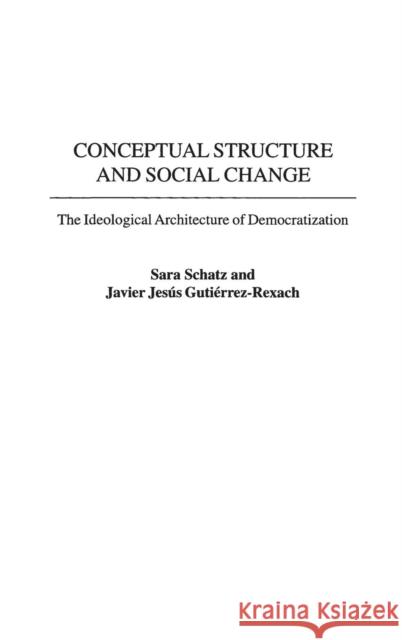Conceptual Structure and Social Change: The Ideological Architecture of Democratization » książka
Conceptual Structure and Social Change: The Ideological Architecture of Democratization
ISBN-13: 9780275971168 / Angielski / Twarda / 2002 / 240 str.
Sociopolitical changes are often associated with ideological shifts at the individual and mass level. The study of how sociopolitical and ideological change interrelate has been the subject of debate for decades. Here, however, the authors develop and defend a new theory that treats ideologies as complex cognitive systems that are internally articulated around prioritized principles and values. Focusing on the transition to democracy in Latin America, the book examines the changes in mass beliefs that accompany democratization in an effort to offer a more sophisticated theory of the relationship between belief, ideology, and action in social change. Ultimately, the authors argue for a cognitive-based model that can account for how social actors come to define democracy in current contexts.Taking democratization as a case study, DEGREESIConceptual Structure and Social Change DEGREESR focuses on third-wave transitions to democracy of the 1990s because they are evidence of very complex ideological changes and alignments. Using comparative survey data as a tool to track ideological shifts, several ideological uniformities are identified, such as the rise of a unified opposition, the paradoxical support of the masses to the authoritarian party in power, and the ideological shifts and strategies used by ruling and opposition elites to gain mass support. Viewing these changes as the mechanics of ideological systems in flux paves the way for a general theory of ideological change.











